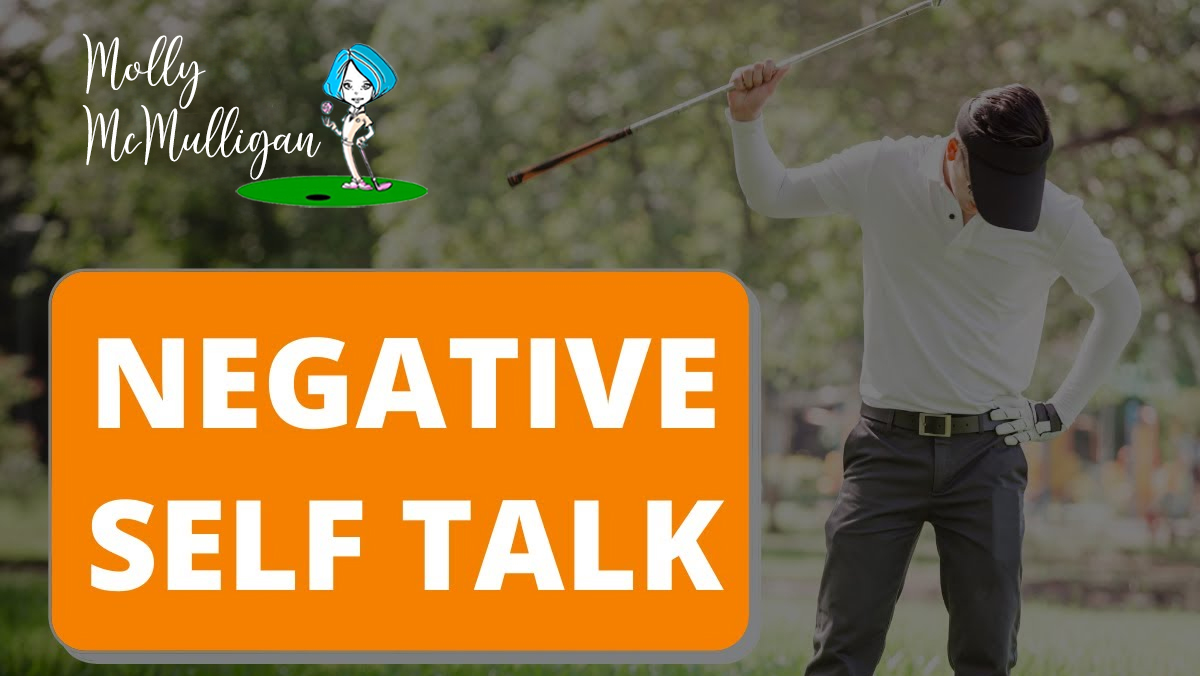Dear Molly: Sometimes in my club I get paired with a certain member who’s a negative self-talker. None of his
shots is good enough and he is certain that “whatever can go wrong will go wrong.” How can I block this out and be positive?
In Bob Proctor’s “You Were Born Rich,” the author coins the phrase now much replicated on pretty posters and decor: “Thoughts become things.”
The rest of Proctor’s quote: “If you see it in your mind, you will hold it in your hand.” It’s meant to be a testament to positive thinking – but, if we golfers insist on berating ourselves for missed 6-footers, calling ourselves idiots and shouting, “I suck!” then it follows that we’ll be holding lots of three-putts in our hands.
“I really focus on people’s self-talk a lot,” says Elena King, president and founder of the ExperienceGolf academy. “Watch what you’re saying, how you’re saying it and how it affects you, because it’s super-important.”
In your case, you’re not saying it but you’re hearing it, and you seem to be bothered by it.
“It’s all in how your respond,” King says. “Are you going to say something to the person, depending on your relationship with them? Are you going to let it bother you? Or, when it’s your turn to hit, can you be focused on what’s under your own control?”
What you could say definitely depends on your relationship! For example:
- I’ve been known to tell Mr. McMulligan, “Don’t talk to my husband like that,” when he gets down on his game.
- Zelda DeBoyes, a member of the CommonGround Women’s Club, might say to a friend, “No one is paying to watch you play golf. And no one is paying you to play golf.”
- How about, “I recommend Chapter 6 of ‘Every Shot Must Have a Purpose’: ‘You Are More Consistent Than You Think.’ “
- And there’s the classic: “It beats working!”
But Elena agrees that, unless we’re with friends, it’s probably not wise to say anything at all. You could say, “Don’t be so hard on yourself,” and hear back, “But I’m so terrible.” Says King, “It’s just a circle.”
So, first, try to keep a distance. Stand off to the side when he’s teeing off or putting, cleaning a club or getting your yardage.
“Most important,” Elena says, “recognize it and remind yourself, ‘Wow, OK, that’s not exactly how I want to be.’ Then ask yourself, ‘What is under my control right now?’ That is the next shot. Focus on that.”
For more of Elena King’s brain training for golf, be sure to check out Train Your Brain in the December issue of CGA Monthly.
Do you have a question about golf etiquette, golf relationships or the culture of golf in Colorado? Email it to Molly McMulligan, the CGA’s on-the-course advisor on how to have more fun on the golf course. Her creator, researcher and writer is golf journalist and CGA member Susan Fornoff.










